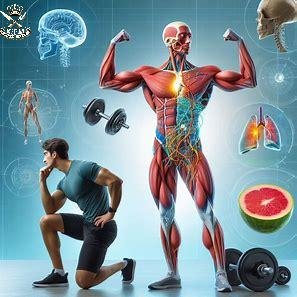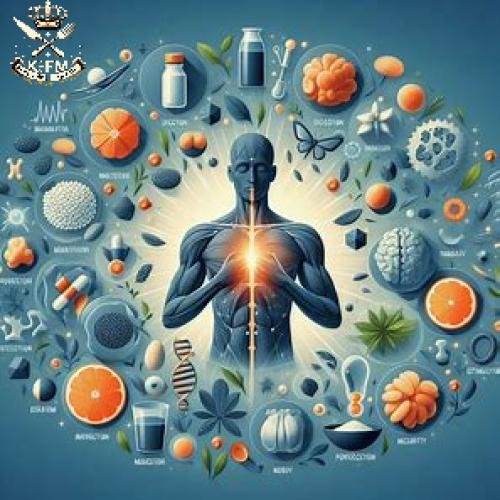Physical fitness is one of the most important factors that enhance the health of both the body and the mind. It contributes to improving cardiovascular functions, strengthening muscles and bones, and increasing the body's flexibility and balance, which reduces the risk of injuries. In addition, physical fitness stimulates the release of happiness hormones such as endorphins, which helps improve mood and reduce stress and anxiety. It also contributes to maintaining a healthy weight and regulating blood sugar levels, which boosts the body's immunity and prevents chronic diseases. However, physical fitness is a topic filled with many misconceptions and myths. Many people circulate incorrect ideas about exercise and nutrition, which can lead to misunderstandings and failure to achieve desired results. In this article, we will examine a number of common myths about fitness and challenge the scientific facts behind each of them.

- "Crunch" exercises are the best way to burn belly fat
Fact: Crunch exercises, which target the abdominal area, are not necessarily the only or best way to burn belly fat. Instead, it is recommended to combine jogging, cycling, and swimming with core strengthening exercises, along with following a healthy diet that promotes fat burning in general. -
If you don't feel pain, you're not gaining anything
Fact: Pain is not an indicator of effective exercise. You should feel some natural discomfort from continued movement and exercise, but intense pain that could lead to muscle injuries should be avoided, as it can hinder your daily activities. -
Consuming large amounts of protein increases muscle mass
Fact: Protein is essential for building muscles, but excessive amounts do not necessarily lead to increased muscle mass. Sufficient protein can be obtained through a balanced diet, and there is no need to overconsume it.
-
Running is the best solution for losing excess weight
Fact: Running is an excellent exercise for burning calories, but it is not the only or best solution for everyone. Exercises like cycling, swimming, and brisk walking also offer similar benefits for fitness and weight loss. -
Carbohydrates cause weight gain
Fact: Carbohydrates provide the necessary energy for physical performance and are an essential part of a healthy diet. Moderation in carbohydrate intake, with a focus on whole foods, helps maintain weight and improve fitness. -
Intense workouts mean better results
Fact: Success in fitness depends more on moderation and consistency than intensity. Regular, balanced exercises promote overall fitness more effectively than intense workouts that may lead to stress or injuries. -
Cardio exercises are better than strength training for weight loss
Fact: Strength training is very important for building muscles and increasing metabolism, which contributes to effective long-term weight loss alongside cardio exercises. -
Sitting for long periods leads to weight gain
Fact: Sitting for long periods can reduce physical activity and calorie burning, but the solution is to move regularly and do exercises that energize you and maintain overall health.

-
Eating small meals several times a day helps with weight loss
Fact: Eating small meals several times a day helps control appetite and maintain metabolism, but it is not a magical solution for weight loss without an overall balance in diet and physical activity. -
Exercising in the morning leads to better results
Fact: The time of day you exercise has little impact on the results overall. The most important thing is to stick to regular physical activity and choose a time that fits your daily schedule and makes it easier for you to stay consistent.
Conclusion: These ten myths are examples of the many misconceptions that can affect our perception of fitness and achieving goals.




















